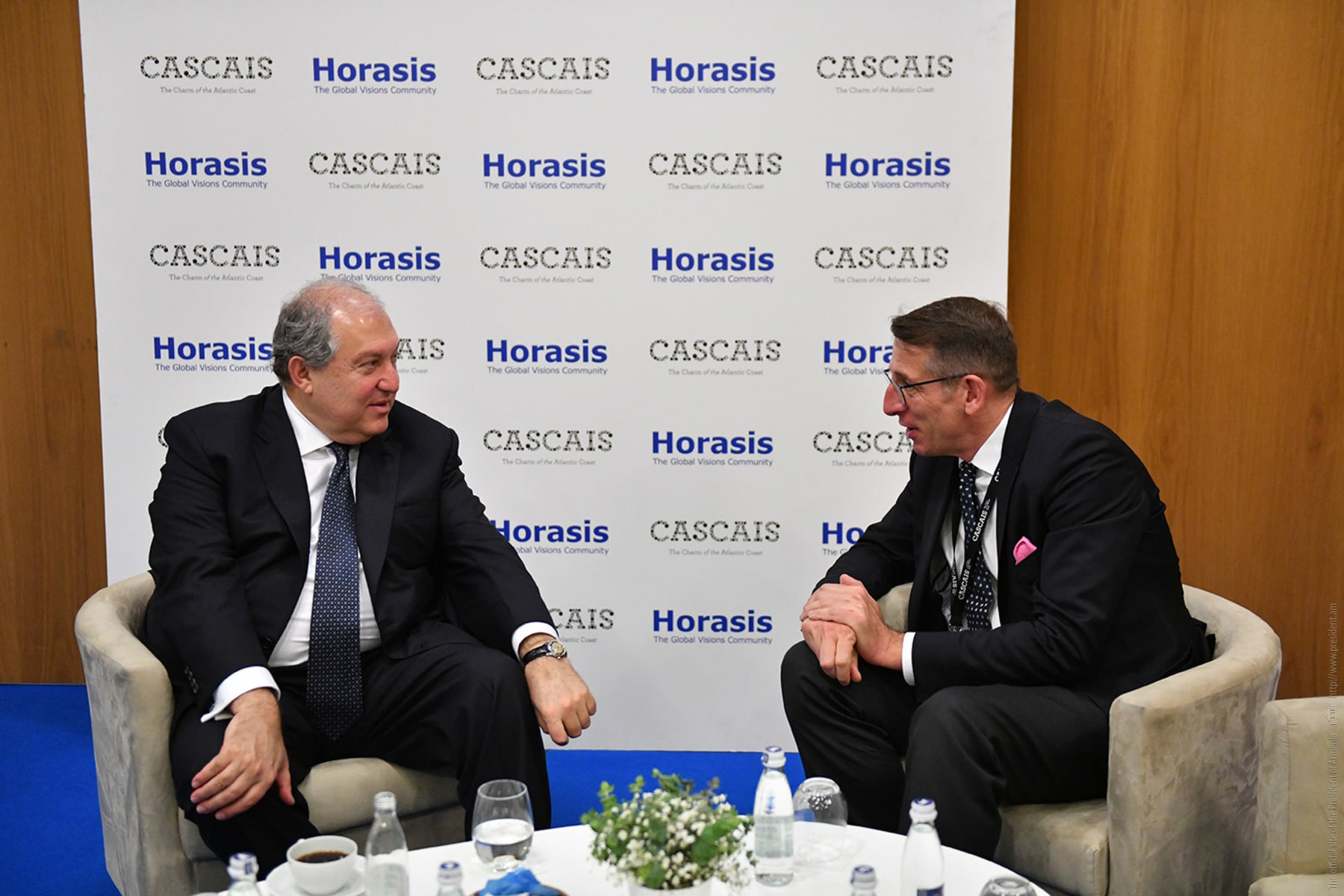Smart Cities Should Utilize A Resource Marketplace To Efficiently Manage Operations And Ensure Digital Privacy
Current approaches to managing energy and transportation systems require extensive data collection which results in poor reliability and digital privacy. On June 8 2021 Horasis will host a panel on the need for Global Digital Privacy Standards For Smart Cities at 15:30 CET (7:30 AM Pacific USA) to present a new architecture that combines a decentralized compute architecture with a Zero Trust security model to create a Resource Marketplace. A key aspect of Resource Marketplace is to treat assets like apartments, offices or parking spots as service providers. Demand, such as energy, and supply information is shared by service providers with a Resource Marketplace to efficiently balance production-to-consumption. Personal data is never exposed to the Marketplace. Moreover, all Smart City participants have the ability to generate income to ensure sustainability.
The Smart City Challenge: No Privacy, Uncertain Reliability And Economics
Smart Cities involve complex interactions between humans and Energy and Transportation systems that require real time computation of sensor data to provide safe actuations and optimal operations. The current plan is to manage Smart Cities by feeding all the IoT sensor data into centralized petabyte scale data lakes where machine learning programs will handle all the management tasks. Unfortunately the current approach makes Smart Cities highly vulnerable to network and power failures as well as data breaches as centralized clouds become a single point of failure.
Centralized cloud-based management systems also face significant cyber security risks. The centralization of data will attract cyber criminals and terrorists to steal personal information, extort money and hijack critical infrastructure. Another challenge of centralized management solutions is their vulnerability to Denial of Service attacks that floods them with requests so they cannot answer real service requests. There is also the risk of targeted ransomware, self-propagating malware, DNS hijacking, and other tools criminals and terrorists use today.
Perhaps the greatest challenge of the centralized cloud approach is efficiently matching producers-to-consumers within a Smart City. For example, simultaneously tracking every power plug in a city and matching their needs with dynamically changing wind and solar generators is beyond the ability of cloud computers. Efficient Smart City operations require a new information and control model that scales to billions of sensors and optimizes resource utilization.
Proposal: Resource Marketplace Powered By A Zero Trust Decentralized Computing
As an alternative to having billions of sensors connected to centralized cloud computers, a new architecture is proposed where buildings and the apartments and offices within them function as intelligent compute nodes with the ability to request and sell resources in a marketplace. The enabling technology is a decentralized computing to process sensor data and transform it into information. The output of the decisions made at a node level are then shared with services using a Zero Trust Architecture. A Private/Public key scheme provides the internal Zero Trust security model to ensure data can only be read by authorized services. External Zero Trust communications is used to communicate with legacy systems. For example, water or fire alerts are shared to all connected services which should include the building an apartment is in.
In this model an office would optimize its energy usage based on the building’s energy allocation. The building in turn would communicate with the Resource Marketplace. If a specific office required more power, the building would first see if another intelligent node wanted to sell its energy allocation. If no power was available then the building would make a request to the Resource Marketplace.
The decentralized compute cluster could run on IoT gateways that connect individual offices to the building. This would be far more efficient and cost effective than sending raw data to a centralized cloud. More importantly any personal information would be removed from Resource Marketplace transactions.
Benefit of the proposed Resource Marketplace include:
Decentralized Compute: The Data lives and is processed inside independent service clusters where data is converted into information.
Zero Trust: Decentralized computers are inherently Zero Trust as personal data is never exposed externally.
No Single Point Of Failure: Instead of management processes running on centralized cloud servers they are run on intelligent decentralized compute clusters.
Regulatory Compliance: Data that needs to be shared for regulatory compliance, such as fire alarms, will be protected using a Zero Trust to ensure only authorized systems can read it.
Resource Marketplace: Revenue Generation For All Smart City Participants
To enable long term sustainable operation a key aspect of the Resource Marketplace is revenue generation. The benefits of a Resource Marketplace can not be overstated as hardware resources that are treated as cost centers become revenue generators. As opposed to raw sensor data going to a centralized cloud, the Resource Marketplace empowers intelligent nodes and the communities they belong to advertise resources for sale. Thus computing power, data storage, an empty apartment, parking spot or unused energy all can be posted for sale.
With 68% humanity moving to dense cities by 2050 (UN Stat) it’s critical to have a technological as well as economic framework that provides a sustainable, resource efficient environment. By combining well proven concepts such as decentralized computing with new Zero Trust security we have the ability to create Smart Cities that can efficiently balance production and consumption without exposing personal data.
This article authored by Junaid Islam, Partner OODA; Mattias Bergstrom, Founder & Chairman, Internet of Everything Corporation; Floyd Kephart, Chairman The Renaissance Companies; Rosana Wong, Executive Director Yaulee Group




